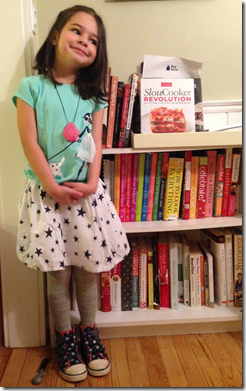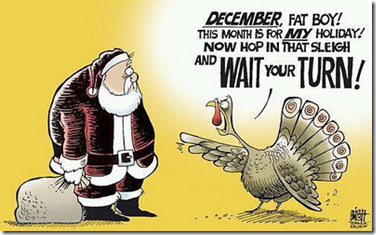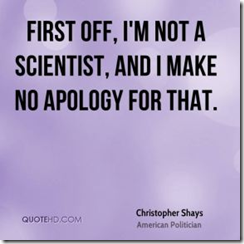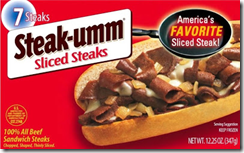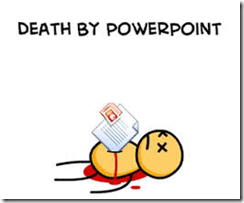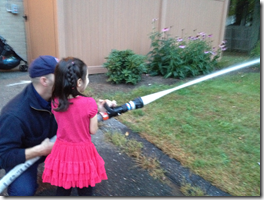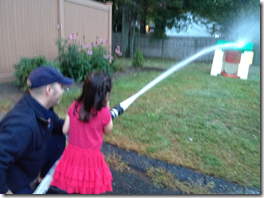Matthew Dicks's Blog, page 371
November 11, 2014
She can find her own bed, and it hurt.
My daughter woke up at 4:00 AM this morning. She came into our bedroom and asked for some tissues. After Elysha hand her the box, I asked her if she’d like me to tuck her back into bed.
Her reply:
“I know where my bed is, Dad. I don’t need your help.”
Can a five year-old really be that jaded already?
November 10, 2014
Christmas seems to have arrived early this year, and shut the hell up.
I’ve heard a lot of whining, both in person and via social media, but the early onset of Christmas.
Santa is already at the mall. Christmas music is playing in shops. Holiday decorations are already going up.
It’s true. Christmas has arrived early this year, and every year it seems to arrive earlier and earlier. But if you listen to the whining and complaining of some people, you’d think that twinkly lights and Jingle Bells are tiny stabs to their small, black hearts.
Get over it. Shut up.
Don’t get me wrong: I’m not supporting the early onset of Christmas in any way. I’m merely coming out against whining and complaining about things that don’t actually matter.
Christmas has arrived early this year. It doesn’t matter.
That said, early Christmas gave me the chance to see my first Christmas commercial (from the UK), and it’s brilliant. Right up my alley given the books I’ve written and am writing.
Be sure to wait until the end for the payoff. It’s worth it.
“I’m not a scientist” is a perfectly acceptable response to climate change questions, as long as you’re willing to acknowledge everything else that you are not.
Republicans who have found the denial of climate change too ridiculous and inconvenient to continue to perpetuate have turned to a new strategy. In response to questions about climate change, they have adopted a single sentence sound byte that they are repeating with disturbing regularity.
“I’m not a scientist.”
“I can’t comment on climate change because I’m not a scientist.”
“I’m not qualified to make determinations about climate change because I’m not a scientist.”
This remark might seem genuine and even thoughtful and measured if it wasn’t being repeated with the frequency of a car alarm in New York City. Republicans everywhere have clearly been given this phrase as a talking point and are using it with great abandon, as Stephen Colbert points out in this segment.
Despite the sudden and overwhelming use of this sound byte as a means of doing nothing about climate change, I’m willing to accept these Republican’s admission of ignorance as long as they are willing to also admit that they are also not:
economists
military strategists
healthcare policy professionals
gynecologists
teachers
Biblical scholars
If these white men (because that is primarily who they are) are unwilling to accept the findings of the vast majority of scientists who assert that climate change is both real and man made because they are not scientists themselves, then they must also renounce themselves from decisions involving the economy, monetary policy, the military, the Affordable Care Act, Medicare, Medicaid, abortion, contraception, education, and any policy enacted in accordance or alignment with Biblical principles.
This is what Democrats need to be saying every time they hear a Republican say, “I’m not a scientist.”
“Yes, but you’re not an economist, either. And yet you seem to be acting like you know something about the economy.”
“Sure, but you’re not an expert on teaching or being a woman or fighting a war, either. So shut the hell up with it comes to those things, too.”
“If you can’t act on the advice of the majority of scientists because you yourself are not a scientist, then you can’t quote the Bible either when defending bans on same sex marriage or just your own bigotry. You probably haven’t even read the thing cover to cover, and even if you have, that doesn’t make you a Biblical scholar.”
I have yet to hear a Democrat respond aggressively or appropriately to this ridiculous sound byte. Perhaps Democrats have and I have yet to hear it, but I couldn’t find an adequate response through a Google search.
Stupidity cannot go unchallenged or it becomes doctrine.
And while people like Stephen Colbert do a fine job of bringing this issue to light and pointing out the lunacy and virus-like spread of these four words, talk show hosts are not enough. Elected leaders must stand up against this ridiculous blanket of words that climate change deniers and ignorers are suddenly wrapping themselves in.
November 9, 2014
The McRib is back. It’s delicious. And there’s nothing wrong with it, you closed-minded, pretentious food snobs.
The weather is getting colder. Winter is upon us. You know what that means?
The McRib will be back soon. I can’t wait.
I know what your thinking. I know how many of you feel about the McRib and McDonald’s in general. But wait. Just listen.
After mentioning to my class that I often eat an Egg McMuffin for breakfast, one of my students told me that her father only allows her to eat Sausage McMuffins because he won’t let her eat “that processed McDonald’s egg.”
This makes me crazy.
Having managed McDonald’s restaurants for more than ten years and having made thousands of Egg McMuffins in my time, I know exactly how the Egg McMuffin is made.
Take a fresh egg. Yes, an actual egg. Crack it into a poaching ring set atop the grill. Place a cover on top of the ring. Add water to a small cup on top of the cover in order to poach the egg faster.
Let it cook.
When done, lift the ring. Transfer the poached egg from the grill to a toasted English muffin. Add cheese and a slice of Canadian bacon that that has been cooking on the other side of the grill.
Real eggs. Real cheese. Real English muffin, Real Canadian bacon.
You may not like the sandwich, but it’s the same poached egg sandwich that you will find in any restaurant today.
In fact, if I were to avoid anything on the McDonald’s menu, it might be the sausage. Everything on the Egg McMuffin is fresh, including the Canadian bacon, which arrives to the stores refrigerated.
The sausage is frozen. It arrives in boxes. I can’t attest to the quality of that meat.
The McRib suffers a similar stigma. Rumors abound about the ingredients of a McRib. People cringe when I tell them that I have eaten one.
McDonald’s recently sought to demystify the secret of the McRib by taking a detractor and a skeptic to the plant that produces McRibs to show them the process.
I’ll let you be the judge.
November 8, 2014
I want to be asked more rhetorical questions
I was watching Homeland last night (season 2, episode 1), and someone asked Claire Danes’ character, “Who do you think you are?”
I was so jealous. I am so ready for this question. But no one ever asks me it. I hear it in movies and on television all the time, and I can recall hearing it once in real life, but never has that question been directed at me.
Unfortunately, Danes’ character failed to recognize it as a rhetorical question, as so many fictional characters do. Instead, she treated the question like an indictment. An attack on her decision to be at a certain place at a certain time. She went on the defensive and ultimately lost the verbal battle.
What she should’ve said was something like this:
“Who do I think I am? Look, I may be bipolar and no longer privy to this country’s deepest, darkest secrets, but I know exactly who I am. I’m Carrie Matheson, damn it. Former CIA officer who has saved countless lives countless number of times, including the life of the Vice President and other high ranking United States officials, even though even I don’t know that I averted that potential disaster. I also happen to be the only person smart enough to know that Nicholas Brody is an al-Qaeda operative, and by the end of this season or maybe next, I’m probably going to kill him and save more lives. Who do I think I am? Is that really the best you can do?”
Rhetorical questions are sneaky. They can trip up someone even as skilled and savvy as former CIA agent Carrie Mathison.
As I’ve written before, you need to train yourself to listen for them, and when asked, you must answer as quickly, as literally, and as aggressively as possible.
It won’t always win you an argument, but it’s a great way to blunt your opponent’s attack and have some fun in the process.
I never realized how truly disturbing the opening sequences to 1980’s TV shows were until now.
Follow me here:
Sometimes someone shows you something that you already knew but never realized how ridiculous and terrible it truly is or was.
Like Steak Ums. We thought they were amazing in the 1980s, but it turns out thin sheets of warm, processed meat isn’t so good after all.
This video, which is the funniest thing I have seen in a while, is one of those things.
That said, if you are under 30 years old, it might also make no sense to you.
November 7, 2014
No technology is a great way to teach. Also, PowerPoint is more than two decades old. It doesn’t count as technology anymore.
Rebecca Shuman of Slate writes about the benefits of a low technology classroom, despite complaints by some students that they are not being prepared for a world in which technology is a dominant an essential force.
While exceptions exist, research shows again and again that when people are staring at a screen, or skip-jumping through a bajillion websites and apps, they are not learning well. Yes, college students are adults, and if they choose to spend class on whatever the new thing to replace Snapchat is, that’s their prerogative—but when it comes to course design, it is still the professor’s job to prioritize student learning.
I couldn’t agree more.
I teach storytelling to adults on a fairly regular basis, and recently, I conducted a series of workshops for teachers as part of an educational conference. In both instances, I was contacted by the conference facilitators and asked what my technology requirements were.
“None,” I said.
“Not even a PowerPoint?” one of the facilitators asked.
“Two things,” I said. “First, PowerPoint is 25 years old. It’s older than beepers and Viagra. It doesn’t count as technology anymore.”
“Okay…” she said.
“Second, after Ebola and ISIS, the next thing that we need to eradicate from this planet is PowerPoint.”
In truth, there are times when I will utilize PowerPoint (and some of the other technology platforms that Shuman mentions in her piece) in my teaching, but only when it is absolutely necessary, which means almost never. Technology for technology’s sake makes no sense to me. Adding bells and whistles to something better done with pencil and paper only interferes with what is good and right about teaching.
Yet I see it all the time.
Besides, most PowerPoint presentations are so poorly designed and utilized so ineffectively that they do more harm than good.
I explain to my adult students that I want to engage them in dialogue and discourse. Make continuous eye contact. Utilize nonverbal signaling.
“Let’s spend the next hour nodding and smiling and furrowing our brows at one another,” I recently suggested to a group of students.
I want them to engage with me. Not my slides or my handouts.
I also understand the value of note taking. I know how it increases learning efficiency and effectiveness. Just the act of writing down of a piece of information helps the learner retain that information, but note taking also forces learners to prioritize, organize, and systematize information as it’s being delivered.
All of this increases understanding and retention enormously.
So I tell me students that if they want to take notes, that’s great. Go for it. Sometimes I even talk about the benefits of note taking. But I also tell them at the end of my class or workshop, I would also be more than happy to send them my notes via email, thus releasing them from this burden as well.
All I really want is for my students to listen, respond, question, and engage. Be fully present in the moment. Not staring at a screen or looking ahead on an agenda or flipping through a handout.
Just be with me for the short time we have together.
Perhaps it’s the storyteller in me. Since I teach through story almost continuously, my instinct is to find a way to engage my students and convey information and understanding through character, plot, humor, and an emotional appeal.
Nothing can ruin a good story faster and more completely than a PowerPoint.
And based upon the feedback that I receive, both formally and informally, I am doing something right. I consistently receive high marks from my students, despite the absence of any material other than me and my voice.
I have never been asked to use more technology in my instruction.
I have never been asked to hand out notes, outlines, or even an agenda beforehand.
My workshops are always well attended, and students actively participate throughout.
It’s old school. Even older than PowerPoint. It’s one person who knows some stuff imparting his wisdom upon a group of people who don’t know that same stuff or don’t know it was well.
It’s stories and anecdotes. Questions and answers. Call and response.
It’s fun. And when students are having fun, they learn.
November 6, 2014
My son doesn’t give a damn about my deadlines.
It was early in the morning. I was trying to finish a book. I needed some peace and quiet.
I got this instead. And it was great.
It would be amazing if my daughter became a firefighter when she grew up. My wife may disagree slightly.
My wife and I differ in opinion on so few things.
She’s not a fan of Meatloaf (the musician, not the delicious meat product), but that’s not a difference of opinion as much as a flaw in her character.
I don’t love many of the traditional Jewish foods that she adores so much, but that’s simply the result of my objectivity on the matter and her lack thereof.
I suspect that we might also disagree on the idea of our daughter becoming a firefighter when she grows up. I took the kids to the fire station’s open house recently, and Clara had the chance to try out some of the responsibilities of a firefighter:
Fire a stream of high-pressure water at a pretend fire.
Climb aboard a fire truck and don a helmet.
Crawl under pretend smoke.
Stop, drop, and roll.
Eat doughnuts.
As I watched her do all these things with great enthusiasm, I couldn’t help but think how amazing it would be if Clara decided to become a firefighter when she grew up. I found myself actually wishing for this dream to become a reality.
My little girl, battling fires, responding to false alarms, and saving lives.
I suspect that Elysha would be slightly less supportive of this possible career path. Not nearly as enthusiastic about her little girl battling flames with a hose and a hatchet. Nevertheless, to her credit, I’m also confident that she would never stand in Clara’s way of making her dreams come true, even if that dream included running into fiery buildings to save cats.
I suspect that she has little to fear in this regard. Ever since Clara could speak in sentences, she has told us that when she grows up, she wants to take care of babies and be a mommy.
Not exactly firefighter material. At least not yet.
Hunter Thompson once retyped The Great Gatsby just to feel what it was like to write a great novel. What a stupid waste of time.
Author Hunter Thompson once retyped The Great Gatsby just to feel what it was like to write a great novel. This fact is often lauded as a demonstration of his commitment to the craft and his desire for excellence.
I can’t imagine a stupider way to spend your time.
Want to write a great novel?
Try writing one. Then try again and again and again.
Thompson did this, of course (and with great success, in my opinion), but perhaps if he hadn’t spent so much time doing what amounted to a popular form of punishments from my childhood (copying definitions from the dictionary), he would’ve had time to write one more story.
Or spent a little more time polishing one of his manuscripts.
I have far too many stories to tell to spend a moment retyping someone else’s story.
Frankly, I doubt that Thompson even did this ridiculous exercise. It’s the kind of story that a great writer like Thompson would make up, knowing its inherent appeal to the general public.
I hope he made it up.

